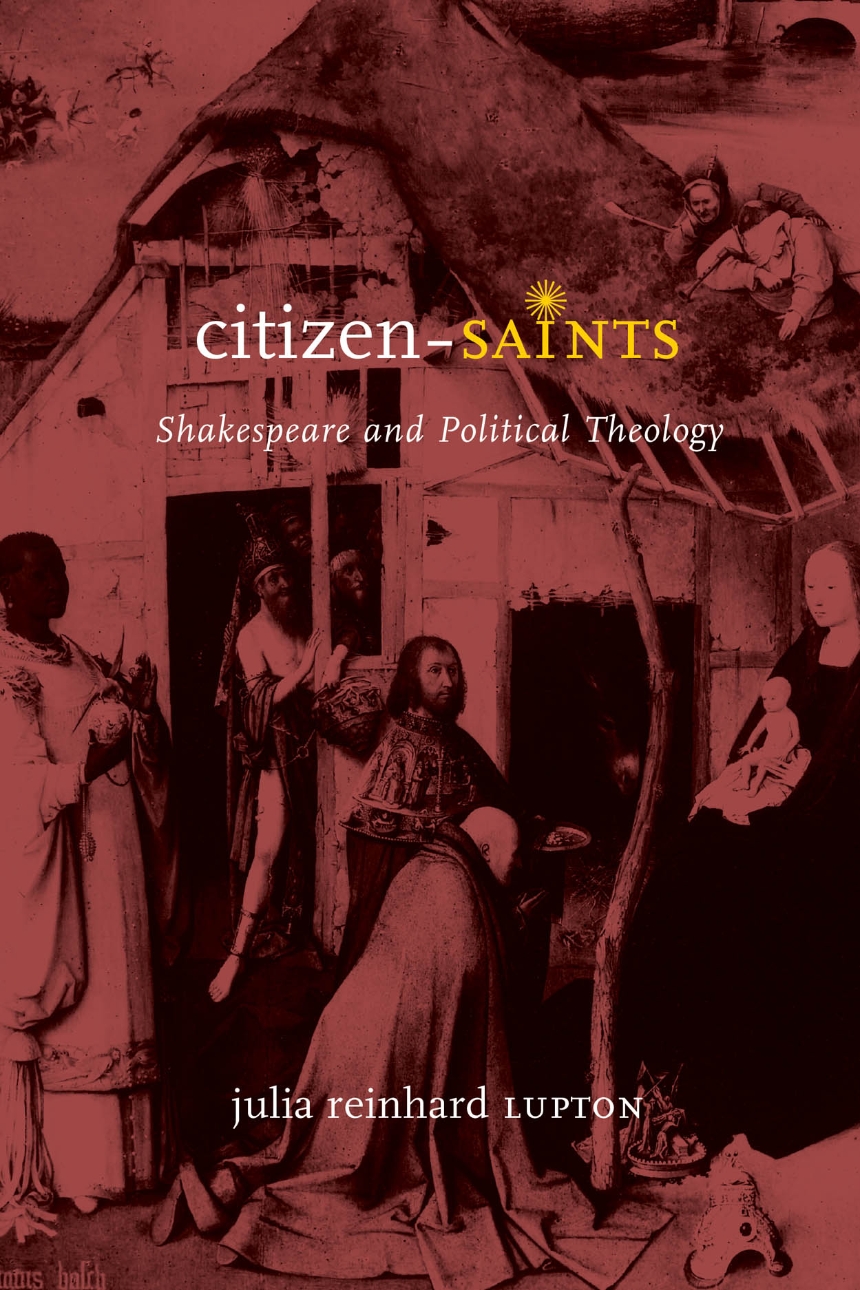Citizen-Saints
Shakespeare and Political Theology
Turning to the potent idea of political theology to recover the strange mix of political and religious thinking during the Renaissance, this bracing study reveals in the works of Shakespeare and his sources the figure of the citizen-saint, who represents at once divine messenger and civil servant, both norm and exception. Embodied by such diverse personages as Antigone, Paul, Barabbas, Shylock, Othello, Caliban, Isabella, and Samson, the citizen-saint is a sacrificial figure: a model of moral and aesthetic extremity who inspires new regimes of citizenship with his or her death and martyrdom.
Among the many questions Julia Reinhard Lupton attempts to answer under the rubric of the citizen-saint are: how did states of emergency, acts of sovereign exception, and Messianic anticipations lead to new forms of religious and political law? What styles of universality were implied by the abject state of the pure creature, at sea in a creation abandoned by its creator? And how did circumcision operate as both a marker of ethnicity and a means of conversion and civic naturalization?
Written with clarity and grace, Citizen-Saints will be of enormous interest to students of English literature, religion, and early modern culture.
Among the many questions Julia Reinhard Lupton attempts to answer under the rubric of the citizen-saint are: how did states of emergency, acts of sovereign exception, and Messianic anticipations lead to new forms of religious and political law? What styles of universality were implied by the abject state of the pure creature, at sea in a creation abandoned by its creator? And how did circumcision operate as both a marker of ethnicity and a means of conversion and civic naturalization?
Written with clarity and grace, Citizen-Saints will be of enormous interest to students of English literature, religion, and early modern culture.
296 pages | 6 x 9 | © 2005
Literature and Literary Criticism: British and Irish Literature
Political Science: Political and Social Theory
Religion: Religion and Literature
Reviews
Table of Contents
Acknowledgments
A Note on Texts
Introduction
1. Citizen Paul
2. Deformations of Fellowship in Marlowe’s Jew of Malta
3. Merchants of Venice, Circles of Citizenship
4. Othello Circumcised
5. Antigone in Vienna
6. Creature Caliban
7. Samson Dagonistes
Epilogue: The Literature of Citizenship: A Humanifesto
Notes
Bibliography
Index
A Note on Texts
Introduction
1. Citizen Paul
2. Deformations of Fellowship in Marlowe’s Jew of Malta
3. Merchants of Venice, Circles of Citizenship
4. Othello Circumcised
5. Antigone in Vienna
6. Creature Caliban
7. Samson Dagonistes
Epilogue: The Literature of Citizenship: A Humanifesto
Notes
Bibliography
Index
